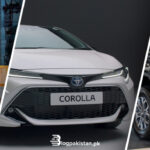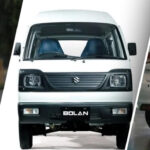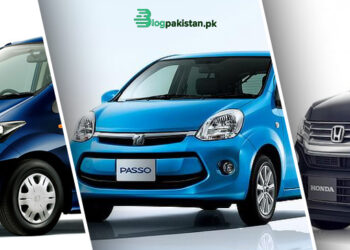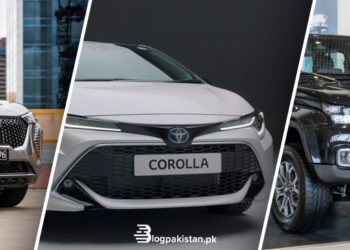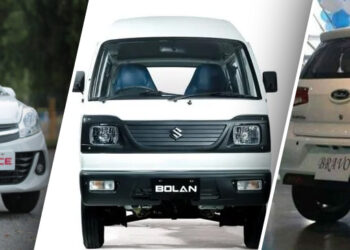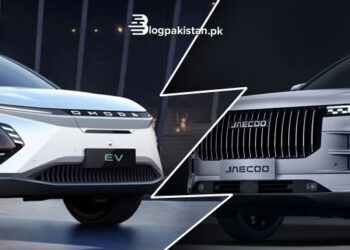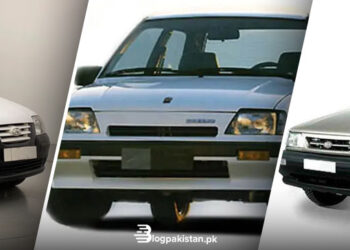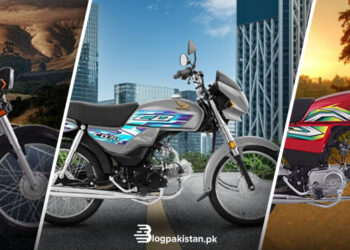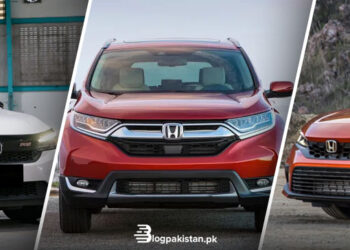The global automobile sector has made rapid improvements in the past years and is estimated to reach around 9 trillion USD by 2030. While the market is booming, climate crises and the role of vehicles in air pollution are driving companies towards electric cars.
In 2020, the electric vehicle market share reached 10 million.
As the world shifts towards eco-friendly automobiles, Pakistan is also adopting the new trend and slowly introducing electric car charging stations in major cities like Islamabad, Lahore, and Karachi. Currently, there are only 3 electric car charging stations in Karachi.
The list is mentioned below:
| # | Name | Address | Contact Number |
| 1 | Shell Askari IV | Rashid Minhas Rd, Gulistan-e-Johar, next to McDonald’s | 021-111544344 |
| 2 | Electric Vehicle Charging Station Gulberg | Block 5, Plot R 13, Gulberg Town | 0345-2068995 |
| 3 | ABB Charging Station | M-9, Gadap Town, Hyderabad Motorway | – |
Charging Methods of an Electric Car
An electric vehicle can be charged using the following ways:
1. Fast charging at charging stations: Car charging stations provide fast charging for cars faster than at home outlets with a 200-1000V fast charger having 22KW to 50KW capacity.
2. Slow charging at home: People can charge their cars at home from a 220 Volt outlet but that process is time-consuming.
Limitations of an Electric Vehicle
The first and foremost limitation of electric cars is that they come at a high cost and offer a limited range. The unavailability of car charging stations at many locations and especially on highways is another issue that electric car owners can come across.
If you charge them at home as mentioned above, the process can be very slow, and even at a charging station, it can take an hour for a car to charge. The charging speed is a limitation that makes many people hesitant about electric cars.
Another limitation is that even with solar panels at home, cars are usually in use during day time and cannot be charged from solar panels at night. To store energy from a solar panel, a battery storage system is needed and that is a very expensive alternative.
Electric Cars and Sustainability
As a small economy, Pakistan has a very small share in the global GHG (greenhouse gas) emissions but as more people are buying automobiles, the rise in emissions is becoming a concern.
Electric vehicles, therefore, are a promising and eco-friendly source but to make them sustainable, Pakistan needs to power its car charging stations from solar or wind energy. Pakistan also needs to make charging stations widely available.
The Impact of Electric Cars on Pakistan’s Economy
In November 2019, Pakistan’s government approved the National Electric Vehicle (EV) policy. The policy aims to help Pakistan meet its climate goals and also help in improving its economy. The electric car industry is a promising market that can work in the country’s favor.
Major automobile companies are working with the Pakistan Electric Vehicles Manufacturing Association (PEVMA) and are investing in projects. The automobile sector in the country is yet to mature but can help the country stabilize its low economic status in the future.
Another benefit of electric vehicles will be the country’s imports. As the country depends on imports for fuel, switching to electric cars can lower the import cost.
Through the National Electric Vehicle policy, Pakistan aims to achieve 30% sales of electric heavy-duty and electric passenger vehicles by 2030. It also aims to raise the percentage to 90% by 2040.
The conversion to electric vehicles from conventional automobiles seems hard for the country at this point. But, through the right policies and consistent efforts, Pakistan can bring back its economy on track while meeting its climate goals.


